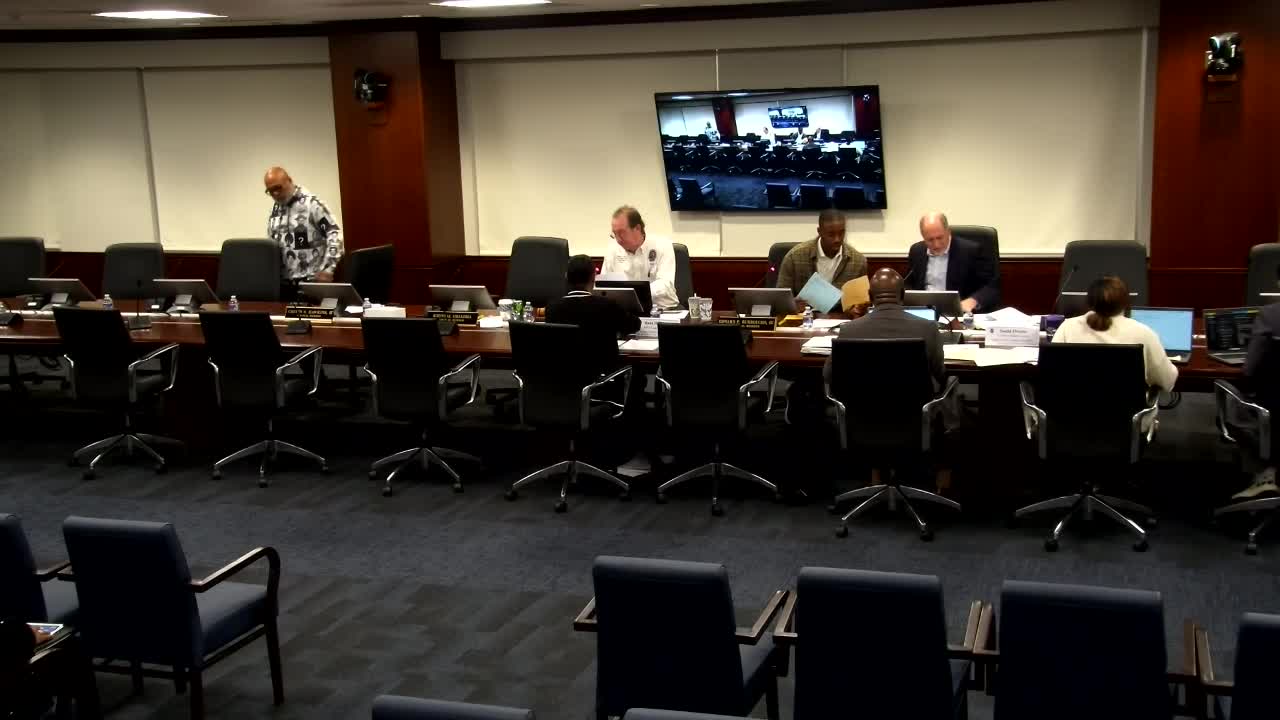Committee advances tenant-protection bill; staff and agencies to clarify enforcement pathways
Get AI-powered insights, summaries, and transcripts
Subscribe
Summary
Committee members voted to move CB 48 forward after a briefing on proposed consumer-protection-style tenant remedies; staff and agencies agreed to follow up on enforcement mechanics and cross-department referrals.
The Planning, Housing and Development Committee voted Oct. 16 to move CB 48 forward, a county bill that would declare certain landlord practices unlawful, including failure to correct substandard conditions, misleading advertising of amenities, failure to maintain essential services and unwarranted tenant fees.
"CB 48 would declare the following practices unlawful, unfair, and deceptive in connection with actions by landlords: failure of the landlord to correct substandard living conditions... misleading advertising of amenities... unwarranted fees assessed by the landlord," committee staff summarized during the briefing.
Committee analysts compared local remedies to Montgomery County's repair-and-deduct procedure, which allows tenants to hire repairs and deduct reasonable costs (up to one month's rent) after the county determines the landlord failed to meet obligations. Committee staff said enactment of CB 48 is not likely to have a direct fiscal impact on the committee's memo but noted the potential need for enforcement mechanisms.
Committee members sought clarity on enforcement. Jonathan Butler, DHCD director, noted that MPDU and housing enforcement functions require interagency coordination. Committee member Burrows recalled that consumer-protection enforcement functions exist at the state level (Attorney General's Office) and said referrals to the state consumer protection division would be a likely enforcement pathway for deceptive-practice claims. The Department of Permitting, Inspections and Enforcement (DPIE) was referenced as the agency that enforces certain housing-code requirements (for example, air-conditioning or essential services) where those items are specified in leases and county code.
The committee voted to move CB 48 favorably; members asked staff to convene follow-up meetings with DPIE and other agencies to document the specific enforcement pathways and remedies that will be available if the bill is enacted.
Why it matters: The bill aims to create clearer county-level prohibitions against unfair landlord practices and to align local remedies with existing enforcement mechanisms, improving options for tenants where property conditions or landlord practices are deceptive or harmful.
What remains: Staff to coordinate with DPIE, the Office of Community Relations and the state Attorney General's consumer protection division (as appropriate) to clarify enforcement steps and any fiscal impacts; the committee action advances the bill to the next stage.
Sources: Committee briefing and vote on Oct. 16; testimony by budget and policy staff and agency representatives.
